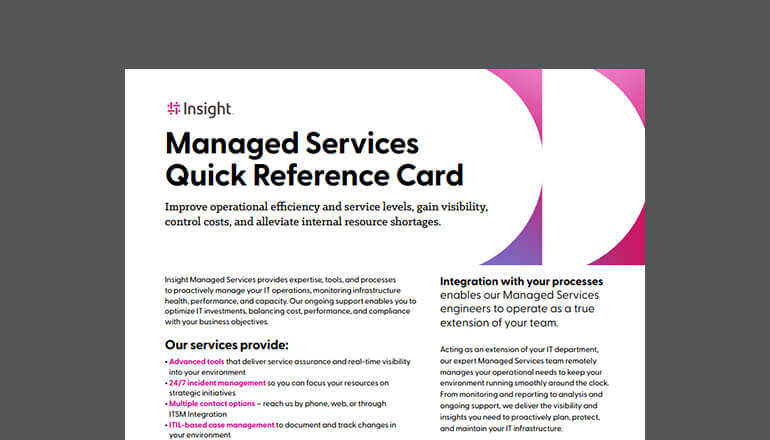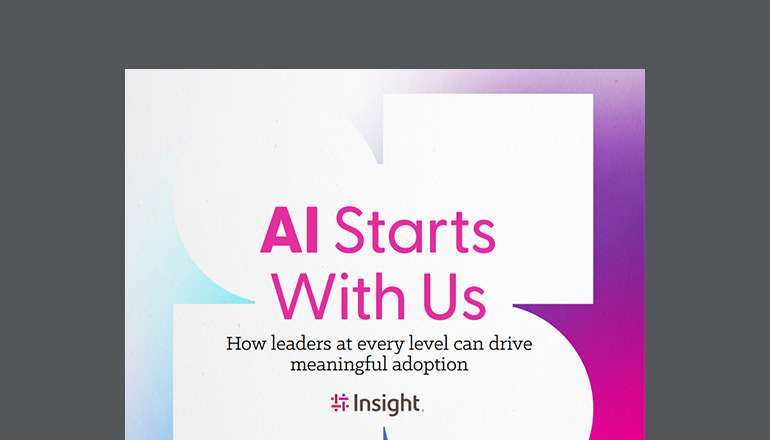Article 5 Retail Automation Trends to Adopt This Year
Automation can impact every facet of your retail operations. In this article, we explore the latest technology and how to effectively adopt automation within your retail environment.
By Insight Editor / 15 Dec 2022 / Topics: Endpoint management , Digital transformation , Analytics

Retail has experienced a multitude of changes in recent years — from pandemic restrictions, online growth and the rise of omnichannel engagement to the challenge of talent retention. Despite the challenges, the industry continues to see consistent growth: Retail sales worldwide are projected to reach $303.3 trillion in 2023.
This growth goes hand-in-hand with the adoption of new digital innovations. Automation in particular is a key component of retail’s transformation. Retail companies with automated operations have improved inventory management and optimized staffing, sales forecasting and customer experience. Let's look at five automation trends and high-impact ways your retail business can integrate this technology.
1. Inventory management
Inventory management is crucial to growing a retail business. Too little stock can lead to a failure to meet customer demands, while too much runs the risk of items expiring or becoming out of step with consumer trends.
Automation can provide visibility into inventory, show trends in customer behavior, forecast seasonal or monthly inventory, and keep track of sales. With automation added to the inventory management process, companies can reduce product loss, boost sales and improve customer experiences.
2. Accounting and bookkeeping
A critical evolution in retail automation? The accounting process. Modern software allows accountants and finance teams to automate slow and tedious tasks, giving them time to focus on more critical efforts. With the right software, retailers can avoid tedious data entry and the need for complex spreadsheets.
The benefits of accounting automation include time savings, improved productivity for accountants, more accurate data, faster data retrieval and secure storage. These improvements help companies avoid costly errors and give their finance teams time back in their day.
3. Predictive analysis, reporting and forecasting
One aspect of retail automation that improves the customer experience is predictive analysis. This type of data analysis enables companies to forecast upcoming sales and prevent possible product shortages. Predictive data can also add personalization to the customer experience by anticipating hot items and trends. And, companies can create reports that offer deeper insights into opportunities to boost customer engagement and satisfaction.
Post-pandemic, 70% of consumers expect elevated digital capabilities from their retail providers. With personalized customer recommendations, you’ll stand apart from the competition and create lasting brand loyalty.
4. Purchasing, delivery and order tracking
With more customers expecting expediency, automation in the purchase, delivery and tracking process lets retailers remain transparent with customers and improve efficiency. Order tracking builds trust, boosts loyalty and helps retailers gain visibility into the shipping process.
Fulfillment automation offers an opportunity to both support internal teams and build trust and loyalty with customers. Shipping automations also take the burden off your team’s shoulders by eliminating or simplifying repetitive, menial tasks. Overall, enabling automation in this area can deliver a noticeable impact on business growth.
5. Maximized sustainability
Eco-friendly business practices benefit the environment and can be a major factor in building customer trust and enhancing your bottom line. From waste reduction to cost savings, embracing sustainability is a powerful investment for your business.
Automation has made sustainable methods more accessible than ever before. Monitoring supply usage leads to less waste and unnecessary purchasing, while automated shipping and transportation logistics can optimize fuel use. These are just a few examples of the influence automation can have on your environmental impact — and the benefit of implementing eco-friendly procedures.
Automate with Insight.
When stores have complete visibility into operations, they’re able to streamline processes, monitor store conditions, get real-time inventory alerts, gather data and free their workforce to focus on customer-driven tasks.
While adopting new solutions can be daunting, you don’t have to navigate retail modernization alone. With a team of Insight experts on your side, it’s easy to leverage cutting-edge retail technology solutions. Harness the power of automation to grow your business and create unique consumer experiences.







